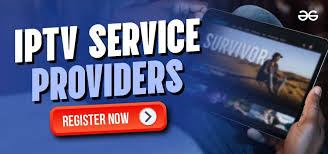Dalam beberapa tahun terakhir, the landscape of television and video entertainment iptv uk has undergone a revolutionary transformation, thanks to the emergence of Televisi Protokol Internet (IPTV). This modern approach to delivering television content has disrupted traditional cable and satellite models, offering greater flexibility, pengalaman yang dipersonalisasi, and cutting-edge features that cater to the demands of the digital age.
Apa itu IPTV?
IPTV adalah singkatan dari Internet Protocol Television, a system that uses the internet to deliver television programming. Unlike traditional methods, which rely on cable or satellite signals, IPTV streams content over an internet connection. This approach enables viewers to access live TV, video berdasarkan permintaan, and even exclusive content through smart devices such as televisions, computers, ponsel pintar, dan tablet.
Key Features of IPTV
- On-Demand Viewing: IPTV allows users to choose what they want to watch, when they want to watch it. This feature eliminates the rigid schedules of traditional TV and aligns with the modern viewer’s preference for convenience.
- Multi-Device Compatibility: Whether it’s a smart TV, telepon pintar, atau tablet, IPTV services are designed to work seamlessly across multiple devices. This ensures that users can enjoy their favorite shows or movies on the go.
- Interactive Features: IPTV platforms often include interactive elements like the ability to pause, memutar ulang, or fast-forward live TV, as well as options for recording programs. Some services also integrate social media sharing and real-time feedback mechanisms.
- Customization and Personalization: By leveraging data analytics, IPTV providers offer personalized recommendations and curated playlists, enhancing the user experience.
- Cost-Effectiveness: Many IPTV services offer affordable subscription models, making them a competitive alternative to traditional cable or satellite packages.
Jenis Layanan IPTV
IPTV encompasses a variety of services, tailored to different viewing needs:
- Televisi Langsung: Similar to traditional TV, live IPTV streams content in real-time, including news, olahraga, and events.
- Video Sesuai Permintaan (VoD): Viewers can select and watch movies, acara TV, or other videos from an extensive library.
- Media Bergeser Waktu: This feature allows users to watch previously aired content at their convenience, bridging the gap between live and on-demand viewing.
- Catch-Up TV: Catch-up services let users watch programs they missed earlier, often available for a limited time after the initial broadcast.
Advantages of IPTV Over Traditional TV
- Aksesibilitas Global: With IPTV, geographical boundaries are no longer a limitation. Users can access content from anywhere in the world, provided they have an internet connection.
- Greater Variety: IPTV services often include niche channels and international content that may not be available through traditional providers.
- High-Quality Streaming: Many IPTV platforms offer high-definition (HD) and 4K streaming options, delivering superior video and audio quality.
- Interactive Advertising: IPTV allows for targeted, interactive advertisements, which are more engaging and relevant to the viewer.
Challenges Facing IPTV
Despite its advantages, IPTV does face certain challenges:
- Internet Dependency: The quality of IPTV services is directly linked to the speed and stability of the user’s internet connection.
- Piracy Concerns: Unauthorized IPTV services have led to concerns about content piracy, prompting stricter regulations and enforcement measures.
- Bandwidth Limitations: High-definition and 4K streams require significant bandwidth, which may be a limitation for some users.
- Technical Complexity: Setting up and troubleshooting IPTV systems can sometimes be more complex than traditional cable setups.
The Future of IPTV
Seiring kemajuan teknologi yang semakin maju, IPTV is poised to become even more sophisticated. Integrasi kecerdasan buatan (AI) and machine learning will further refine content recommendations, while innovations like virtual and augmented reality (VR/AR) could redefine how viewers engage with television.
Bahkan, the expansion of 5G networks will address bandwidth concerns, enabling smoother and faster streaming experiences. As more viewers cut the cord and embrace internet-based solutions, IPTV is set to dominate the future of entertainment.
Kesimpulan
IPTV mewakili perubahan signifikan dalam cara kita mengonsumsi konten televisi dan video, offering unmatched flexibility, personalisasi, dan aksesibilitas. Whether you’re a tech-savvy viewer or someone exploring alternatives to traditional cable, IPTV provides a glimpse into the future of entertainment. As the technology matures and adapts to consumer needs, it promises to reshape the global media landscape for years to come.






